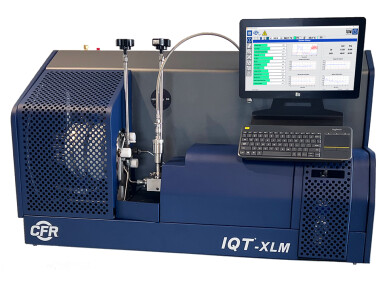Analytical Instrumentation
Why Are Shares Dropping for African Petroleum?
Jul 19 2017
Operating in Côte d’Ivoire, Senegal, Gambia and Sierra Leone, African Petroleum is one of the continent’s biggest producers. Though after Gambian Oil Minister Fafa Sanyang confirmed that his country had ended talks to extend exploration rights for two offshore areas, shares in the Oslo-listed company tumbled by some 40%.
Responding to the announcement, African Petroleum said it was both "surprised and disappointed" by the decision, reminding Sanyang that legally it still holds the rights to the licences, and will do everything in its power to defend them.
Gambia stands by its decision
Gambia was quick to hit back, with the oil ministry's commissioner for petroleum, Jarreh Barrow standing by the decision.
"We are not responsible for what African Petroleum says or does not say and for your information the Ministry is NOT in talks with African Petroleum," stated Barrow when asked to comment on the status of the permits.
3 billion barrels at stake
If the decision sticks, African Petroleum could lose an estimated 3 billion barrels of oil, according to a recent evaluation of its A1 and A4 licence blocks. As a result of the turmoil, African Petroleum shares fell by a huge 57%, before partially recovering.
Chief Executive Jens Pace was on-hand to reassure investors, promising that "the licence agreements have dispute mechanism provisions which we fully intend to utilise if the Gambian authorities maintain this stance.”
He followed up with diplomatic comments that while African Petroleum is willing to fight, the company’s “preferred route is to engage in more constructive dialogue in order to establish a way forward that is in the best interest of all stakeholders.”
Conflict across the continent
It’s not the first time African Petroleum has run into trouble, with neighbouring Senegal also claiming to have cancelled one of the company’s two contracts. It was annulled on the grounds that African Petroleum had failed to fulfil its commitments, with the block later attributed to Total.
Meanwhile, Gambia is continuing to nurture its own interests, with the government approving a deal for Australia's FAR to acquire an 80% stake in a pair of blocks held by New York-listed Erin Energy Corporation.
Over the past few years, ionic liquids have emerged as an efficient tool for enhanced oil recovery. With low melting points, good thermal stability, negligible vapor pressure and high viscosity, they’re also ideal stationary phase candidates for gas chromatography. For a closer look at their role, ‘Principal Component Analysis (PCA) Evaluation of Seven Commercial Ionic Liquid Capillary GC Columns’ compares the retention mechanisms of seven commercial capillary columns that utilise ionic liquid stationary phases.
Digital Edition
PIN 25.5 Oct/Nov 2024
November 2024
Analytical Instrumentation - Picturing Viscosity – How Can a Viscometer or a Rheometer Benefit You? - Sustainable Grease Formulations: Evaluating Key Performance Parameters and Testing Method...
View all digital editions
Events
Dec 03 2024 Dusseldorf, Germany
Dec 08 2024 Anaheim, CA, USA
Turkey & Black Sea Oil and Gas
Dec 11 2024 Istanbul, Turkey
Dec 19 2024 Aurangabad, India
Jan 20 2025 San Diego, CA, USA



















